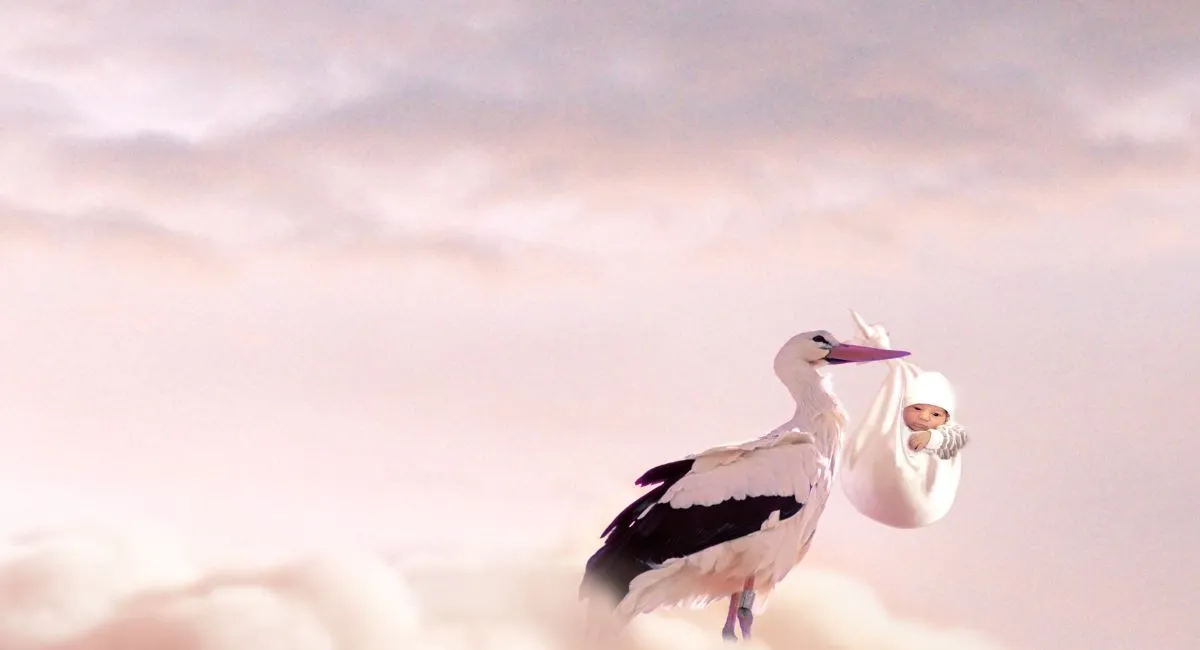From the hazy window,
I see those frail feet.
Mother of two,
Still searching the garden green.
Mating butterflies,
ending their weekly ignorance.
Moths munching on the plantain,
awaiting the darkness it craves.
Monochrome thoughts on the ill-lit swell.
The blanket over my eyes,
traps me in its grasp.
What if the tears dry?
Her mane now I caress,
my tender arms over her aching self.
Further the cumulus grows,
I retreat into the deeper below.
Broken vessel under the rain,
I now drown with others’ grief.
Forlorn pups with their twisted tails,
silent and abrupt.
Evening sets in,
far from home.
But what if those tears dry?
Reach I the rainbow red,
many a time on an eventful morrow.
Dry their tears,
on the basking seashore.
Forget I myself.
amalgamating into the indifferent blue.
Poetry
What If I Go?—A Poem About Leaving, Dreams, and Finding Truth
What if I go and never comeback?
Would you still smile or fade into black?
What if I go and stay on the track?
Will you be proud or just hold me back?
What if I go and follow my dreams?
Will it be what it seems or just tear at the seams?
What if I go and fall on the way?
Will I rise again or drift away?
What if I go and don't say goodbye?
Will you search for me or question me why?
What if I go and the silence grounds?
Will you call my name or let it bound?
What if I go where no one knows?
Will I find peace or feel the throes?
What if I go and become someone new?
Will you recognize me or lose me too?
So if I disappear in the blue,
Know that I left to find what's true.
So if I disappear in the blue,
Remember that every step still leads to you.
The only GHOST I met was LIE, and the only GOD I believe in is TRUTH
Earlier, my god was a lie, and ghosts were truth. But how? Ask me, "How not?" Lies protect me no matter what and in trouble; the only thing that could save me was a LIE, whereas TRUTH hurts the most. It makes me insecure about small things; it makes me get in more trouble. It is said that सच कड़वा होता है and एक झूट छुपाने के लिए 100 बोलने पड़ते हैं... WHO CARES?? If truth is bitter, let me LIE, but it is not all. Lies are comfort but made of illusions – they feel warm, safe, and easy—but only because they hide the sharp edges of truth.
It's just the longer you hold it close, the heavier it becomes. On the other hand, truth is something like pain, but it heals. It floods your room with light, but I was used to the dark because of the light. It makes me uncomfortable, uneasy. But in that discomfort, there’s clarity. It strips away the softness of illusion, revealing the world as it is unfiltered. It demands that you grow, even if it hurts. It’s not always kind, but it’s always real—and in that reality, there is something stronger than comfort: freedom. A LIE CAN SAVE ME TODAY, BUT TRUTH CAN SET ME FREE FOREVER by not holding me back, like a LIE; it makes me think about it every minute.
Will they find out?
Did I say too much… or not enough?
What if I forget what I said?
Was it really necessary?
Did I just make things worse?
What will happen if the truth comes out?
Do they believe me?
Am I becoming someone I don’t recognize?
How long can I keep this up?
Was it worth it?
Is this who I want to be?
Whereas my God my Truth
When the truth comes out, everything changes.
It can break hearts or build bridges.
It can hurt—but it heals.
It ends the lie, starts the real.
It’s chaos, then clarity.
Painful, but freeing.
I have more to say but isn't this ENOUGH to believe - The only GHOST I met was LIE and the only GOD I believe in is TRUTH.
IF NOT THEN that person is not ready.
Not ready to face themselves.
Not ready to trade comfort for clarity.
Not ready to meet the ghost in their own mirror.
Choice Change Change
As the meandering river of fate cascades through
The unyielding terrain of the universal void,
Liquid life glistening on the astral orbs;
There stands Conscience,
At a point of divergence,
Watching intently the
Numerous offshoots branching from the
Starry stream of a galaxy, flowing as
Far as its metaphysical vision could comprehend;
Thinking to Itself,
“Which, oh, to which stream’s current shall
I cede my skeletal canoe?
Which path, which choice,
Should my weary mortal frame tread –
A cruel road to riches and ever-lasting want,
Or a righteous trail to contentment and unfulfilled need?
A gnarly ascent to fame and a loss of privacy,
Or an idyllic, smooth descent to peaceful oblivion?
A thoroughfare to acclamation built on lies,
Or one toward social exile built on brutal honesty?
O Heavenly Parent, guide your child toward the light.”
At long last, after brooding over the quandary
Till the sun’s eyelids droop;
Though the dread of failure hangs
In the otherwise tranquil yet unsettling silence;
Conscience rolls the dice and chances upon
A stream, a path, an option;
And nudges itself toward it.
Now a fait accompli, the journey
Seemed less unnerving, but
Just as arduous.
After having travelled a distance that determined
The chosen path a permanent decision,
Conscience camps for the night.
Though its vehicle of flesh goes
Out like a light,
Its mind races to somehow
Convince itself that
It has chosen the path
Accurate for its ambition.
It couldn’t help but wonder
Whether it would regret its pick.
Many a morrow later, when Conscience experienced
The motley mixture of euphoria, contentment and pride
Which comes with the accomplishment of
A life’s purpose in the world,
And a remembrance of the sheer
Determination and effort applied toward
Bringing about change
In a personality, a character, a device of fleeting thought, a soul;
A tiny sliver of thought still voiced its question,
Its topic of rumination:
“What would my fortune have been had I
surrendered to a different current?”
Our choices shape the mind;
Our risks shape character;
But our incorporation of change
Into every aspect of our persona,
Fueled by our mind, character, instinct and conscience:
That shapes our legacy.
The Echoes of Betrayal, Poem: Why Not Safety?
In the echo of slogans, a promise we weave,
Beti Bachao Beti Padhao, a chant we believe.
In the tale is half told and the truth is not so sweet.
For safety exclusive where shadows still creep.
Success blooms bright, dreams take their flight.
Yet the shadows of dangers linger in the night.
Let our actions be more than slogans we say,
Let the world change to keep shadows at bay.
Changes must be more than words and page,
It’s time for a world where they’re safe at each stage.
A graceful girl just six months old,
With a princess twirl and story not so old.
Her journey begun with a gentle breeze,
Her tragedy so stubborn made her freeze.
Cuts on her body of regrets and reliefs,
This was the story her life briefs.
Not just one child but many daughters grown up,
Her struggle begins when he threw at her a cup.
Blood in eyes, not just tears,
It was the only time in life for fears.
He just plucked her like flower,
But what about her dream of becoming a star.
No one catches him… Why?
Why only girls leaving this world with a sigh?
We seek for justice and another murder,
Leave me please was her last scutter.
He killed her to be safe,
But one day of this life will just leave him like a waif.
Not all men but there’s always a man,
Why are there just a few left as gentleman?
The pain, the blood, the story of the cruel night, we will never forget,
This world needs to promise that every girl will be safe and set.
Clairaudience meditation: A special Gift
Have you ever heard about Clairaudience Meditation? Beings with clairaudience can hear divine messages and feel the presence of spiritual beings around them. It is a special gift that allows you to be in tune with the transcendental, receiving guidance and comfort in times of need. Clairaudience is like listening from the mind of the Universe to your mind, the words that at that moment your help needs for yourself or for others.

These special gifts, although often misunderstood or even questioned, are an important part of the human experience. They remind us that the world is much more complex and mysterious than we can perceive with our physical senses, and they invite us to explore the depths of our being and the universe that surrounds us. Because in truth, there are others (realities) that surround us, that sometimes we don't even realize, if someone doesn't say something about someone we know, they could help us on some occasion when we find ourselves on our paths.
Today what I want to talk to you with most fervor is about those anonymous people who heal, or rather they are channels that the Masters of the Universe use to heal a person. I have personally witnessed healings, miracles granted through a good soul to a person in need of healing. Normally these people prefer to be anonymous, although many times fame precedes them. I hope with humility that I have explained to you another side of life that surrounds us, one full of light and help that we can have at our side.
People who use Radiadthesia are those who use the pendulum, many listen with their minds to what they are saying to help others, others with yes or no, can also respond to reassure the person who needs it. In reality, when we were created, each and every one of us came with a Gift, some of us feel them and make use of them, others due to careers, life's problems, sadness or illness, do not realize them, so they walk their path without knowing it.
I hope I have explained this feeling of mine, and that you liked it.
Ask Life, poem that explain my feelings
The grandmother was already leaving, older with so many wrinkles on her skin that you could hardly distinguish those Sky-colored eyes that were still sick, they continued looking with that infinite tenderness that she always looked at.
He approached me, his mouth on my ear and said;
Ask my life (I don't have the strength), ask it how that path that I found when going down is going,
and also tell it (but with tenderness), that I would like to be worthy of spreading wings because you know?
They told me a long time ago that to return to Heaven, we have to unleash those wings they gave us.
What do you think, my love, my good daughter?
Do you feel that I will return as I came down with a tender soul?I looked at his eyes, tired of looking, scared, perhaps, by fear of what would happen, something in me burst out as if I were bursting into tears, as if Heaven were suddenly arriving, as if a sigh was drowning my heart, without being able to respond only with joy and pain.
They filled words from the depths of the soul that I managed to say there in his ear;
GOD speaks for me, and tells you that you are that beautiful, tender and quiet girl, the one who still maintains her wings.
!! Deploy them daughter!!!
My LOVE LOVES YOU.I kissed her on the forehead, I blessed her good life, and I swear that Three angels approached her, and spread their wings, with smiles and singing, with the light of Heaven shining, my grandmother said goodbye to me and closing those eyes of tender loves, merged with the Creator.
Julia Orozco
The poem weathered:resilience in twilight
The poem "Weathered" captures a vivid scene of nature's resilience against harsh elements, using imagery and symbolism to evoke deeper themes of fragility and endurance.

Poem Weathered
An icy wind shook
Extinguishing the day
The sun cried
No longer with its blinding light
Dimmed to nothing
Woodland creatures hid from the silent storm
Beneath a double cape
For it was their only escape
Twilight breathed its spell
The air was calm as can be
Flowers drank the morning dew
Giving them a different hue
In the gaze of the waking sun
To bloom and nod in all their glory
For icy frost in the night
Would make them wither
In the pale moonlight
Analysis of the poem "Weathered"
The poem begins with an intense setting described by an "icy wind" that "shook" and "extinguished" the day. This imagery suggests a sudden and overwhelming change, where the typical warmth and light of the sun are replaced by a cold, oppressive atmosphere. The personification of the sun "crying" adds a sense of loss and vulnerability, as its once powerful presence is diminished to nothingness. The environment becomes hostile, driving woodland creatures into hiding beneath a "double cape" for protection, emphasizing their instinctual need for survival in adverse conditions.
As the poem progresses into twilight, there is a shift in tone and atmosphere. The air becomes "calm," contrasting sharply with the earlier tumultuous weather. This transition symbolizes a period of respite or renewal after the storm. The mention of flowers drinking the morning dew and taking on a "different hue" suggests a metaphorical rebirth or transformation. The flowers, now nourished and revived by the gentle morning light, are depicted as resilient symbols of beauty and vitality.
However, the poem also warns of the fragility inherent in this natural cycle. The flowers bloom and nod in their full glory under the "waking sun," vulnerable to the "icy frost" that returns in the night. This delicate balance between life and decay is emphasized by the contrast between the vibrant daylight and the chilling moonlight, which threatens to cause the flowers to wither.
Overall, "Weathered" explores themes of endurance, vulnerability, and renewal within the context of nature's cycles. The poem's imagery of harsh weather, protective instincts of wildlife, and the fragile beauty of flowers conveys a deeper message about the resilience of life in the face of adversity, while also acknowledging the inevitable impact of time and external forces on existence.
Poem Rainbow: Gratitude’s Radiance
In a Silver Moon night adorned by a thousand Luceros, a woman finds solace in the presence of her soul. Their dialogue unfolds amidst celestial wonders, as she expresses gratitude for the divine spark within her heart. This exchange, rich with imagery of stars, mountains, and oceans, reflects on the profound interconnectedness between the individual and the universe. Through the woman's words, we glimpse the transformative power of gratitude and love, as they weave a tapestry of light and resilience amidst life's challenges.

Poem: Rainbow
A Silver Moon night,
surrounded by Luceros, a thousand
the woman was found with
his soul,
and they spoke to me like this:
Do you know the soul of my soul?
I never gave you gratitude for
give spark of Heaven,
inside my heart ,
not even for being inside me,
and make it possible to be me,
that star, that star,
that field made into flower;
that mountain on fire,
that ocean water,
where are they going to stop me?
the rivers that I love so much;
that word of love,
when someone is
suffering,
that Light that they need
those that darkness
they lived,
and at this, he interrupted
the soul saying,
Gratitude forever
to you,
for sheltering me in your
body,
allow me, my beloved,
May you dress as a rainbow
as long as you continue living me,
and thank you (he told him),
to brighten all Aurora,
all night, all being,
Well, all your prayers
go up to Heaven like
wind and kisses the Face of
God, and come back to me
again.
Poem Analysis
The poem reflects on gratitude, love, and the interconnectedness of souls. Through vivid imagery of celestial bodies and natural elements, it portrays a dialogue between a woman and her soul. The woman expresses gratitude for the divine spark within her, allowing her to blossom and overcome challenges. The soul, in turn, acknowledges the woman's role in nurturing it and vows eternal gratitude. The exchange symbolizes the reciprocity of love and the cyclical nature of energy and blessings. The imagery of stars, mountains, rivers, and light emphasizes the universal bond between humanity and the cosmos. Ultimately, the poem celebrates the symbiotic relationship between the individual and the divine, highlighting the power of gratitude and love to transcend earthly limitations.
Poem “I will do” celebrates love and gratitude
I will make your life cheerful,
may you walk forever in love,
I will fill your paths with flowers,
because you see the face of your God.
There is no other way to live than loving,
love the love of the verb to love,
without offending or mistreating,
always smiling when walking.
Why is it not living in tears?
or regrets,
walking is knowing how to walk,
with the faith of birth and the light of gratitude,
everything that life puts in front of you,
for it is the path that your feet walk,
and if sadness or great sorrow comes,
or maybe you'll get the feeling of not having,
feel son of my soul, my star,
that in every dawn and dusk
God, the Giver of Love,
will sow tenderness in your soul,
for loving you even more, my dear.
And with Him, as a companion,
your path will be water of love,
river of laughter and lucky life,
that you and me, me and you,
We will walk loved until the end.
Poetry analysis
The poem celebrates love and gratitude, emphasizing the importance of walking life's path with joy and kindness. It speaks of finding solace in faith and the presence of God's love, guiding one through sorrow and hardship. The imagery of filling paths with flowers and walking in love portrays a hopeful and optimistic outlook on life. Overall, it encourages embracing love and gratitude as guiding principles, leading to a fulfilling and blessed existence.
The Birth of a Poem
What spurs the birth of a poem?
What nascence it enjoys?
A borrowed spark or hired fire,
Or your own white noise?
Do old memories cast
A shadow on today?
And is the present born
Of past that's thrown away?
Or was the umbilical cord
Of present and the past
Not properly severed
So the ephemeral would last?
When inherently chequered
Like sunshine through the leaves
It often makes me wonder
What poetry achieves?
They tell me it is cryptic
But poetry, is life
Love at first sight, for some
For some, eternal strife!











